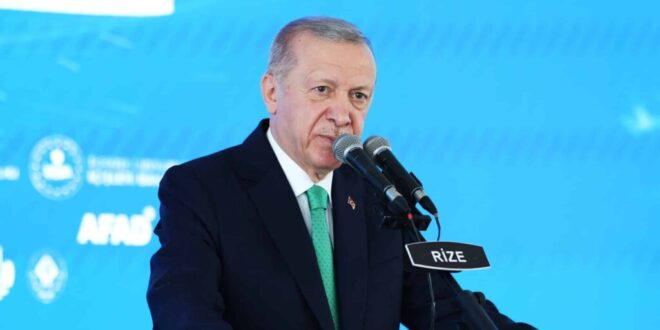Speaking to members of his governing party on July 28, 2024, President Recep Tayyip Erdogan of Turkey threatened to invade Israel. Erdogan’s inflammatory rhetoric suggests Ankara may pursue a more escalatory posture in the developing conflict between Israel and Lebanon’s Hezbollah.
At a party conference in his hometown Rize, Erdogan remarked, “We must be very strong so that Israel can’t do these things to Palestine. Just as we entered Karabakh, just as we entered Libya, we might do the same to them. There is nothing we cannot do. Only we must be strong.” His threat comes after a Hezbollah rocket supplied by Iran killed 12 children in the Israeli Druze town of Majdal Shams, exacerbating tensions as Israel ponders and both Hezbollah and Lebanon prepare for possible escalation.
A bipartisan group of U.S. lawmakers denounced Erdogan’s threat. Sen. Richard Blumenthal (D-CT) voiced his concern “about any autocratic anti-Israel rhetoric, most especially by the leader of a country that is a NATO ally,” while Sen. Chris Van Hollen (D-MD) referred to the outburst as “outrageous and totally unacceptable.” At the same time, Israel’s foreign minister, Israel Katz demanded Turkey’s “expulsion” from NATO.
Erdogan’s comments represent his commitment to championing terrorist organizations such as Hamas and Hezbollah. Erdogan has maintained an open relationship with Hamas since 2006, offering the group diplomatic, logistical, and perhaps even military support. In recent years, Turkey has also warmed to Hezbollah, seeing the group’s actions against Israel as both legitimate and laudable. While the State Department still hopes Turkey can contribute productively to diplomacy to resolve the ongoing violence along Israel’s borders, Erdogan’s actions belie these hopes. Since the October 7 Hamas terrorist attacks that killed over 1,200 Israeli civilians, Erdogan has escalated anti-Israel rhetoric. He identifies Hamas not as a terrorist entity but as “mujahadeen” freedom fighters and publicly honors senior Hamas leaders, including Ismail Haniyeh, its political chief. Erdogan backs his rhetoric with material support. On July 21, Israel’s internal security service, the Shin Bet, foiled a Hamas terrorist attack orchestrated from Turkey. The Shin Bet captured five terrorists who attested to the military training, weaponry, and cash they acquired in Turkey. Israeli security has repeatedly intercepted weaponry and explosive precursors originating from Turkey that smugglers were attempting to get into Gaza.
Erdogan often threatens other countries to bolster political support from his nationalist and Islamist base. Neither the United States nor its NATO allies should ignore Erdogan. President Joe Biden in concert with NATO Secretary General Jens Stoltenberg should demand a de-escalatory statement and corrective language from Erdogan. In January 2024, the United States authorized a $23 billion deal to sell F-16 fighter jets, upgrade kits, and weapons to Turkey. Washington conditioned the sale on Ankara using such aircraft for NATO purposes only and not for threatening Greece. In order to deter Ankara, Washington can pursue a more sensible policy when authorizing future military sales. While the present F-16 sale has been authorized, Ankara appears more interested in concluding a deal with the United States to co-produce the F-16. This can and should be made conditional on Ankara’s treatment of U.S. allies.
 Eurasia Press & News
Eurasia Press & News




